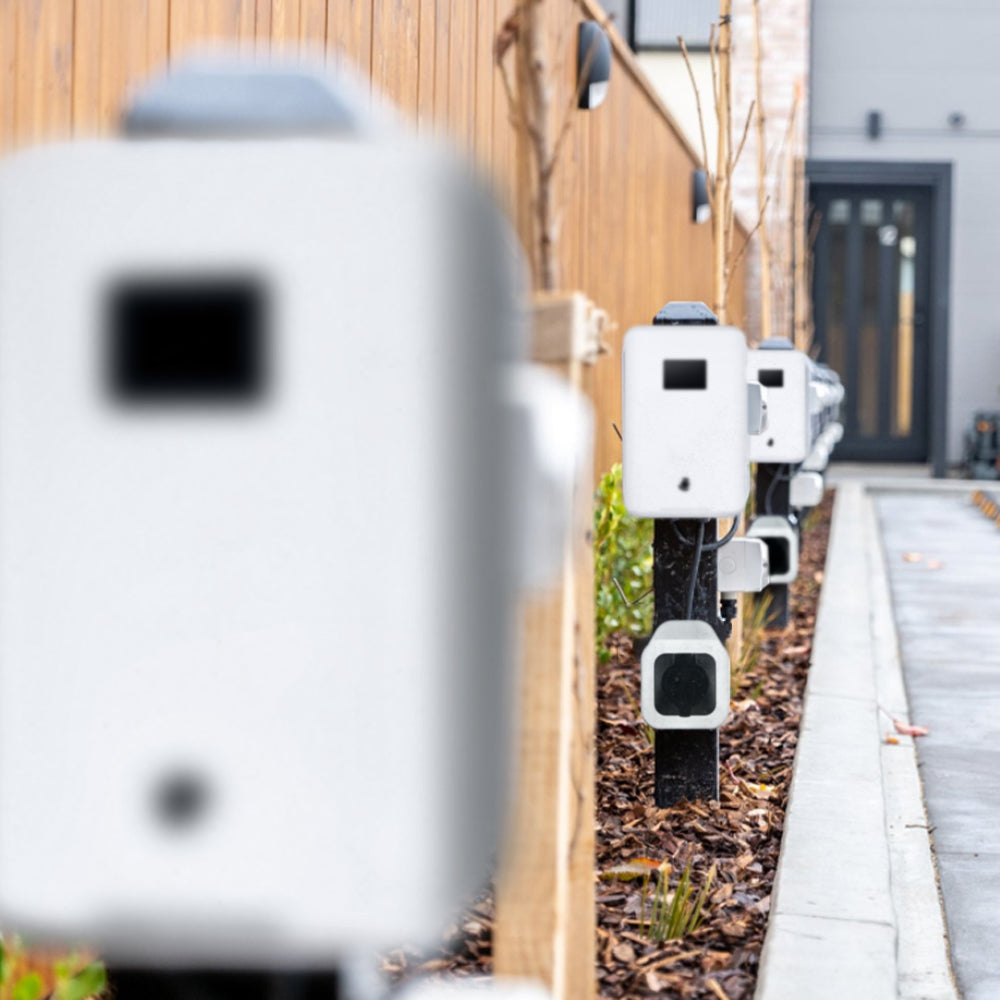Da Elektrofahrzeuge (EVs) in ganz Europa immer beliebter werden, stellt sich neuen und potenziellen EV-Fahrern eine zentrale Frage:
'Ist das Laden zu Hause wirklich günstiger? Oder sind öffentliche Ladestationen trotz des Preises bequemer?'
In diesem Blogbeitrag analysieren wir reale Ladekosten, vergleichen Sie verschiedene Methoden in verschiedenen Ländern und helfen Sie Ihnen, fundierte Entscheidungen zu treffen Ladekosten für Elektrofahrzeuge in EuropaDie
✅Heim VS Öffentliche Ladegebühren in ganz Europa
Beginnen wir mit einem Vergleich der durchschnittlichen Strompreise pro kWh in fünf großen europäischen Ländern für drei typische Szenarien.
Laden zu Hause (Tagestarif)
Laden zu Hause (Nebentarif/Nachttarif)
Öffentliches SchnellladenG
Hier wird der Preisunterschied besonders deutlich.
Durchschnittliche Strompreise nach Abrechnungsmethode (€/kWh)
| Land | Laden zu Hause (Tag) | Laden zu Hause (nachts) | Öffentliches Schnellladen |
| Frankreich | 0,25 € | 0,18 € | 0,55 € |
| Deutschland | 0,40 € | 0,32 € | 0,65 € |
| Spanien | 0,27 € | 0,21 € | 0,48 € |
| Italien | 0,38 € | 0,30 € | 0,60 € |
| Niederlande | 0,36 € | 0,28 € | 0,58 € |
Wichtigste Erkenntnisse:
Nachts zu Hause aufladen ist in allen Ländern deutlich günstiger – insbesondere in Frankreich und Spanien.
Öffentliches Schnellladen ist zwar praktisch, hat aber seinen Preis – oft 2 bis 3 Mal teurer als das Laden zu Hause außerhalb der Spitzenzeiten.
Deutschland weist die größte Differenz zwischen privaten und öffentlichen Tarifen auf, was das Laden zu Hause finanziell attraktiver macht.
✅Wie viel kostet das vollständige Aufladen eines Elektrofahrzeugs?
Angenommen, Sie fahren ein typisches Elektrofahrzeug mit einem 60-kWh-Batterie (wie beispielsweise ein Tesla Model 3, Renault Mégane E-Tech oder Hyundai Kona EV).
Hier sehen Sie, wie viel eine vollständige Aufladung mit verschiedenen Methoden kosten würde.
Gesamtkosten für eine vollständige Aufladung eines 60-kWh-Elektrofahrzeugs (€)
| Land | Zuhause (Tag) | Zuhause (Nacht) | Öffentliche Gebühren |
| Frankreich | 15,00 € | 10,80 € | 33,00 € |
| Deutschland | 24,00 € | 19,20 € | 39,00 € |
| Spanien | 16,20 € | 12,60 € | 28,80 € |
| Italien | 22,80 € | 18,00 € | 36,00 € |
| Niederlande | 21,60 € | 16,80 € | 34,80 € |
Beobachtungen:
Das Laden zu Hause außerhalb der Spitzenzeiten spart 15–25 € pro Vollladung. im Vergleich zu öffentlichen Ladestationen.
Laden zu Hause auch zu Tagestarifen ist in den meisten Ländern immer noch deutlich günstiger.
Im Laufe eines Jahres könnten die Einsparungen insgesamt betragen Hunderte von Euroinsbesondere für Vielfahrer.
✅Laden zu Hause: Warum es die intelligentere Wahl ist
Abgesehen von den Kosten, Aufladen zu Hause bietet Komfort und langfristige Vorteile:
Immer bereit: Über Nacht aufladen, kein Anstehen oder Zeitverschwendung an Bahnhöfen.
Sicher und privatKein Risiko durch defekte öffentliche Ladegeräte oder Parkplatzstreitigkeiten.
Intelligente IntegrationNutzen Sie zeitabhängige Stromtarife, Solaranlagen oder sogar Heimspeicher, um die Effizienz zu steigern.
Viele Autofahrer steigen auf 7-kW- oder 22-kW-Wallbox-Ladegeräte um, die sich perfekt für eine vollständige Aufladung über Nacht eignen.
📌Wenn Sie Ihr Auto außerhalb der Spitzenzeiten aufladen möchten, können Sie das Laden zu Hause in Betracht ziehen. Zum Beispiel ein App-gesteuerte Ladestation für Elektrofahrzeuge ODER ein tragbares Ladegerät für Elektrofahrzeuge mit Zeit & verzögerte Funktionen.
✅Wenn Sie weiterhin öffentliches Schnellladen benötigen
Öffentliche Schnellladestationen sind in manchen Situationen trotz ihrer Kosten unerlässlich:
Reisen unterwegs und Autobahnfahrten;
Stadtbewohner ohne private Parkplätze;
Notfälle oder wenn Sie schnell Nachschub benötigen.
Die häufige Nutzung öffentlicher Ladestationen kann jedoch die Gesamtbetriebskosten erheblich erhöhen.
✅Fazit: Geld sparen? Investieren Sie in eine Heimladestation
Wenn Ihre häusliche Umgebung es zulässt, ein Heim-Ladegerät für Elektrofahrzeuge ist eine der kostengünstigsten Modernisierungen, die Sie vornehmen können.
Speichern über 500 € pro Jahr allein auf Basis der Ladekosten;
Machen Sie Ihr Zuhause fit für das Zeitalter der Elektrofahrzeuge;
Übernimm die Kontrolle über deine Energie.
Ob Sie sich in Frankreich, Deutschland oder anderswo in Europa befinden – Heinige EV CLadegewinneDie



